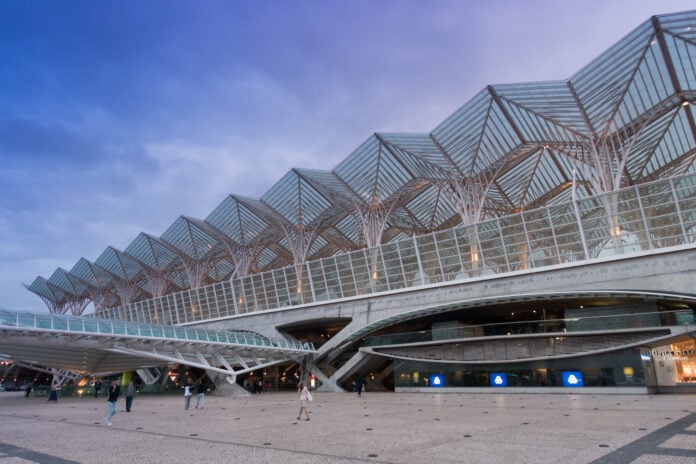When you think of Lisbon, Portugal’s capital, you might picture streets traditional buildings covered in tiles with tiny balconies overlooking narrow streets. And you would be right. But amidst the centuries-old streets, you’ll also find several quirky and eccentric buildings that reflect the city’s creative spirit. If you’re seeking to explore the unique side of Lisbon’s architecture, here are 13 of the quirkiest buildings in Lisbon and where to find them.
1. Casa do Alentejo
Location – Rua das Portas de Santo Antão 58
At first glance, the Casa do Alentejo looks like just another aristocratic mansion nestled in the heart of Lisbon. But step inside, and you’re transported to a completely different world. The building’s interior is a mashup of Moorish, Gothic, and Romantic elements, a palace straight out of a fairytale. The courtyard, reminiscent of a Moroccan riad, is a showstopper with its intricate tiles and arches. Originally built as a palace, it later became a social club for immigrants from the Alentejo region. Today, it’s a cultural hub that hosts exhibitions, music performances, and has an elegant restaurant. You can even rent it out for events.
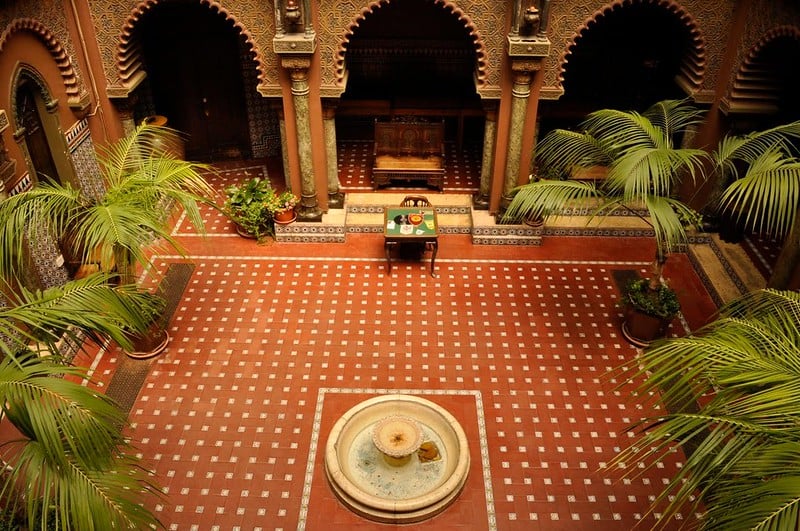
2. Casa dos Bicos
Location – Rua dos Bacalhoeiros 14A
With its spiked façade that resembles the pointy skin of a diamond, Casa dos Bicos (House of Spikes) is one of Lisbon’s most distinctive Renaissance buildings. Built in the early 16th century by the son of a Portuguese viceroy, it combines Italian and Manueline styles. The quirky aspect comes from its façade adorned with hundreds of diamond-shaped stones. Today, it houses the José Saramago Foundation, celebrating the life and works of the Nobel Prize-winning Portuguese writer. Don’t miss the basement, where you can see the remnants of Roman Lisbon.
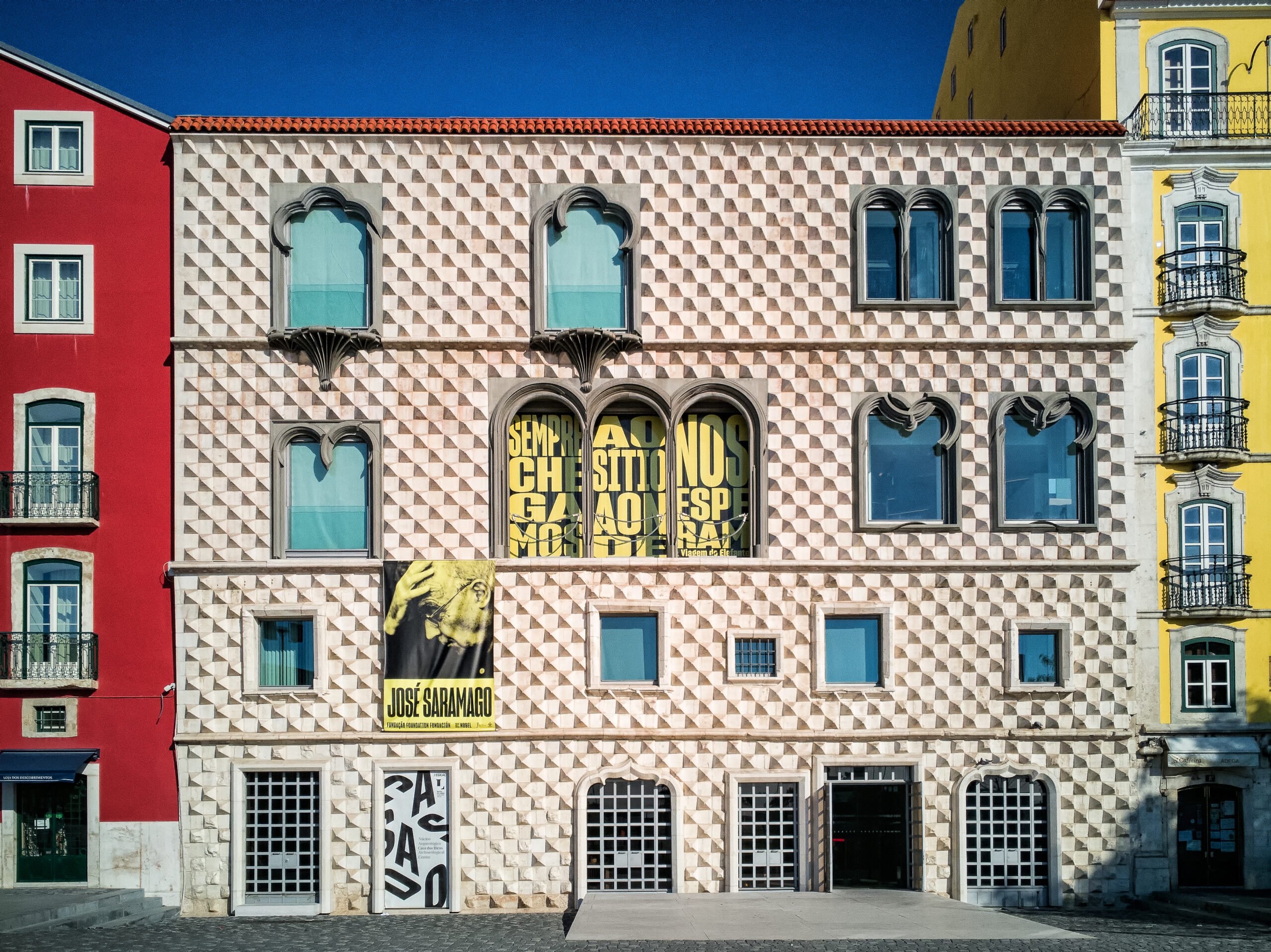
3. LX Factory
Location – Rua Rodrigues de Faria 103
What happens when you take a former industrial complex and transform it into a cultural hot spot? You get the LX Factory. This quirky space in the Alcântara neighborhood is filled with creative energy and hosts a mix of studios, restaurants, cafes, bookstores, and art galleries. The standout building is a former textile factory covered in murals, graffiti, and street art, making it a mecca for fans of urban art. On Sundays, a market sprawls through the factory, adding to its quirky, bohemian vibe.
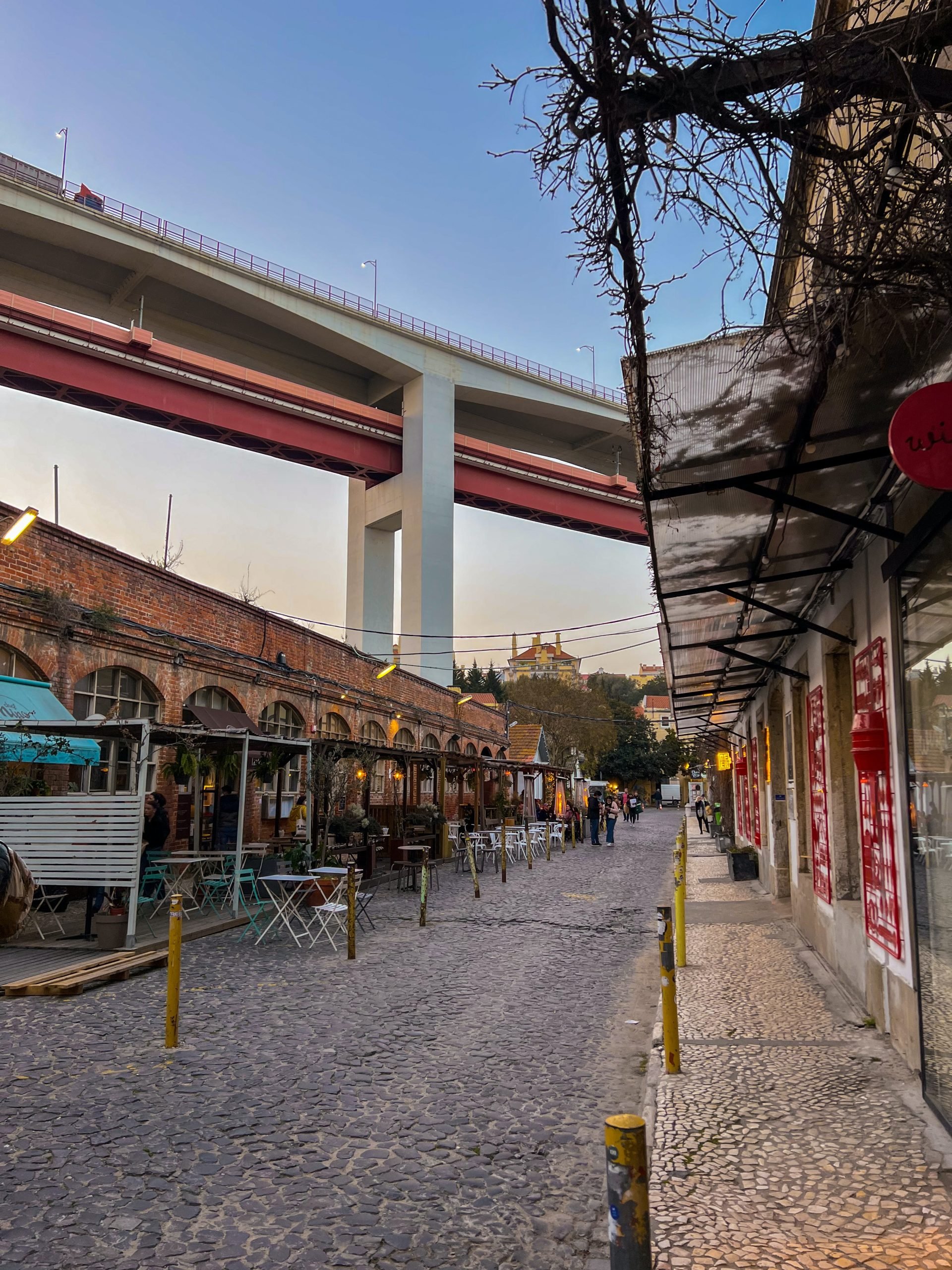
4. Gare do Oriente
Location – Praça do Oriente
Designed by world-renowned architect Santiago Calatrava, Gare do Oriente is a futuristic transportation hub that could easily be mistaken for a sci-fi film set. The most eye-catching feature of this station is its intricate canopy, which resembles a forest of metal trees. The sweeping glass and steel structure is functional yet imaginative, hosting trains, buses, and metro services all under one impressive roof. Located in the modern district of Parque das Nações, this quirky station is an architectural wonder that’s both practical and playful.
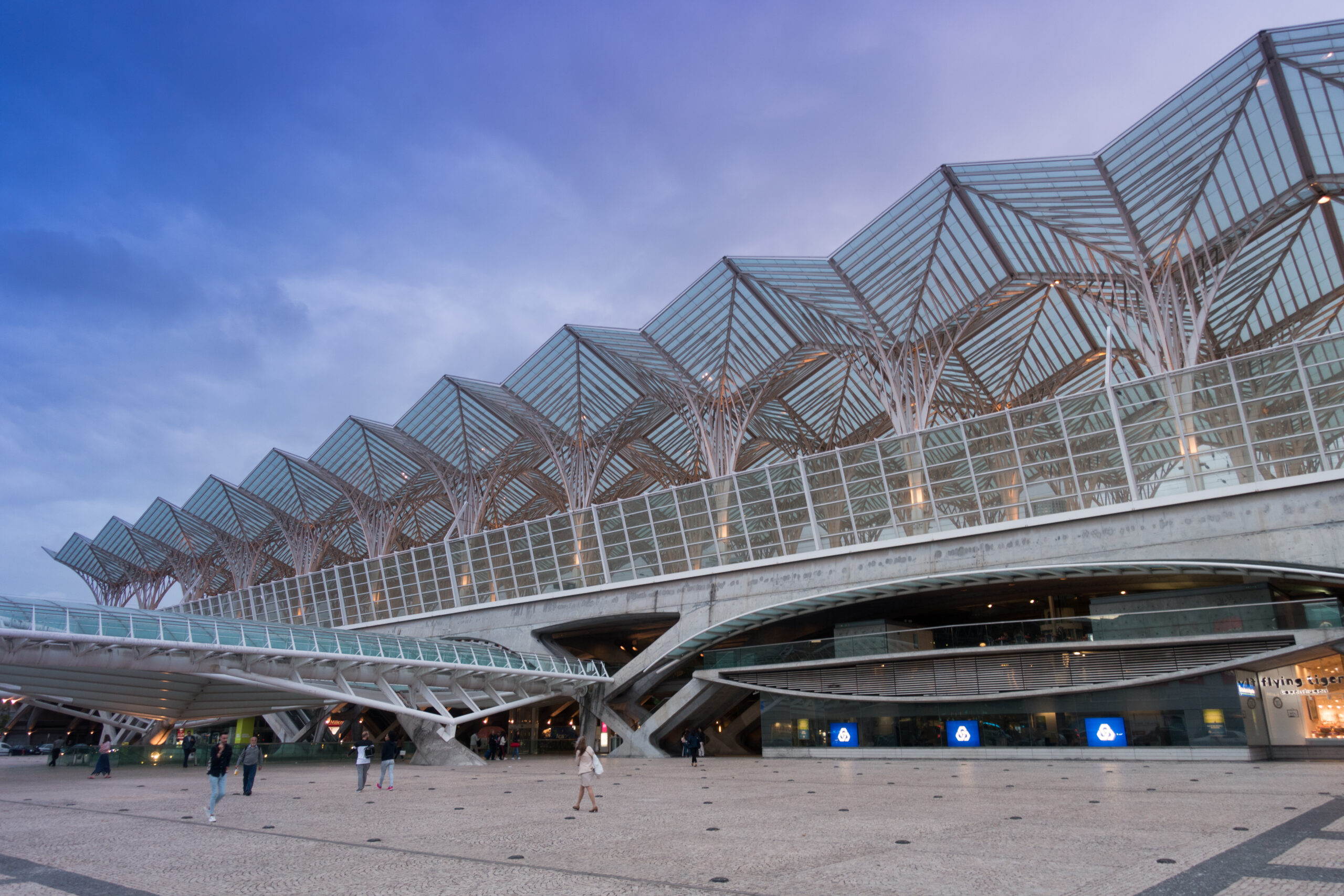
5. Pavilhão de Portugal
Location – Parque das Nações, Alameda dos Oceanos, 1990-221
Built for the Expo ’98 world fair, the Pavilhão de Portugal, designed by acclaimed architect Álvaro Siza Vieira, is a marvel of minimalist architecture. The building’s quirk lies in its undulating concrete canopy, which seems to float above the structure like a wave frozen in time. The enormous sail-like roof, supported by slim columns, creates a dramatic contrast with the rest of the pavilion’s clean lines. This building is both a feat of engineering and a poetic tribute to Portugal’s maritime heritage.
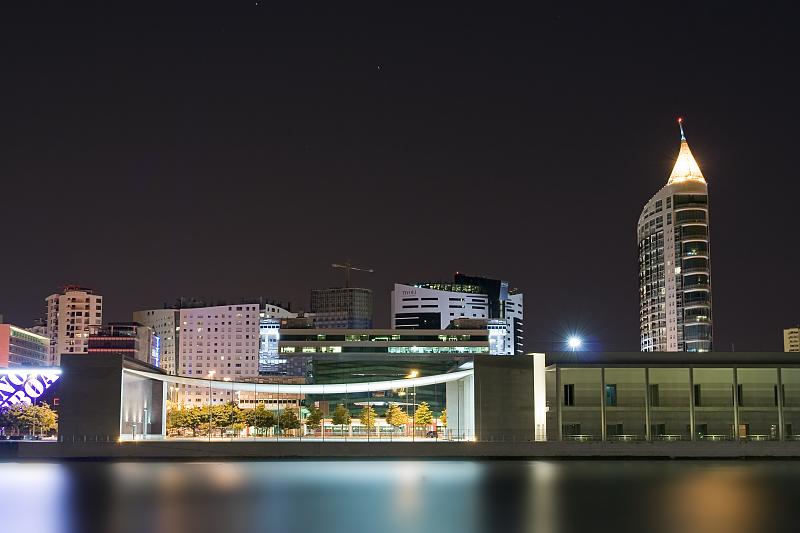
6. MAAT – Museum of Art, Architecture, and Technology
Location – Avenida Brasília, Belém
Perched on the banks of the River Tagus, MAAT is Lisbon’s boldest contemporary structure. Its sinuous form mimics the waves of the river and invites visitors to walk along its rooftop terrace for panoramic views. Designed by British architect Amanda Levete, the museum’s façade is clad in thousands of white, 3D tiles that catch the sunlight and reflect the water. Inside, the museum explores the intersection of art, architecture, and technology. Its futuristic design makes it a stark contrast to the historic buildings of Belém, giving it a distinctly quirky appeal.
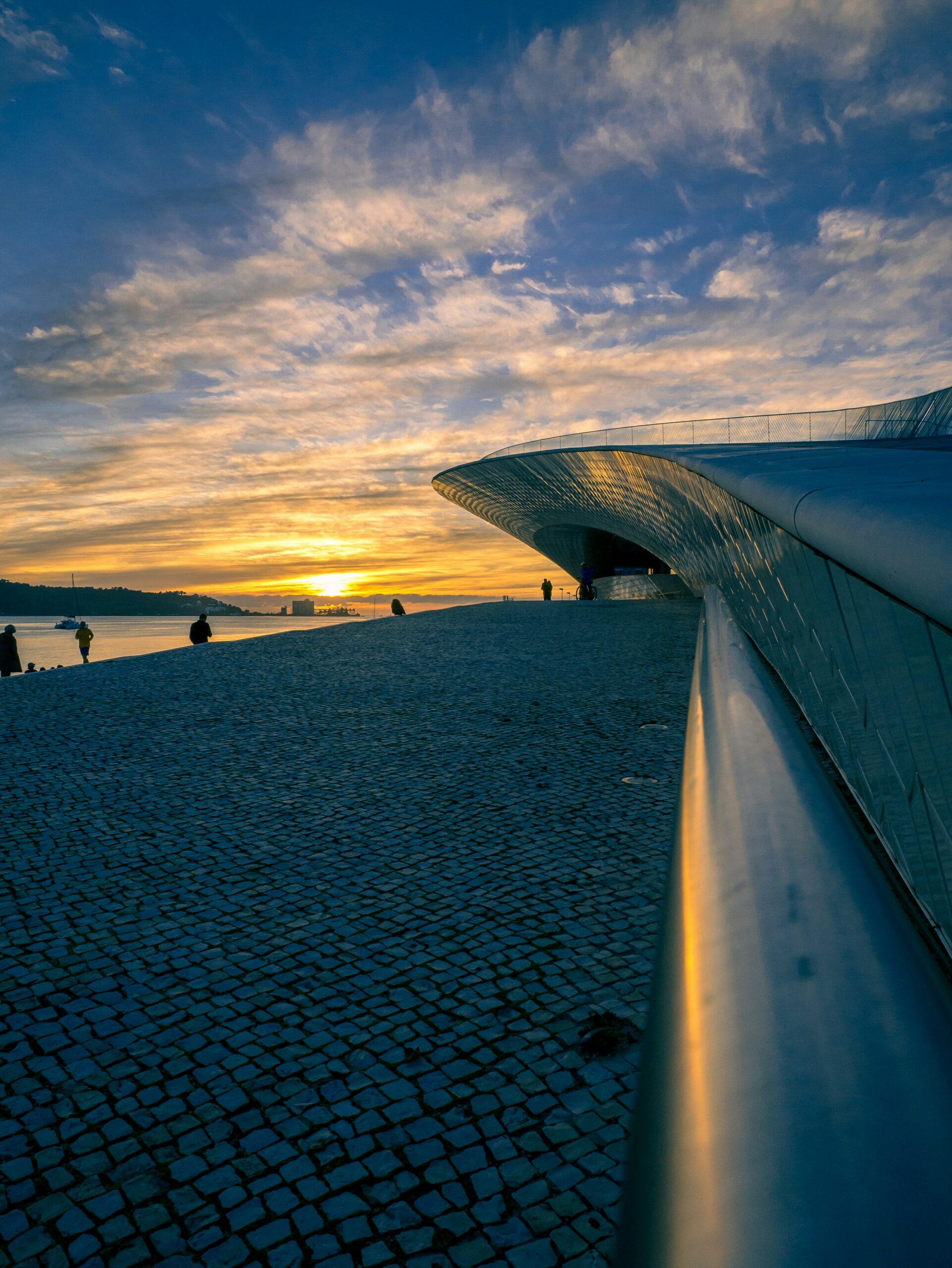
7. Caixa Geral de Depósitos Headquarters
Location – Avenida João XXI 63
One of the quirkiest examples of 20th-century brutalist architecture in Lisbon, the Caixa Geral de Depósitos Headquarters was designed by architect Arsénio Raposo Cordeiro in the 1980s. This colossal building stands out for its rough concrete structure, imposing geometrical forms, and distinctive tower that dominates the skyline. Despite its utilitarian nature as a bank headquarters, its unique architectural style adds to its charm. Love it or hate it, this building is a key symbol of Lisbon’s modernist urban landscape.
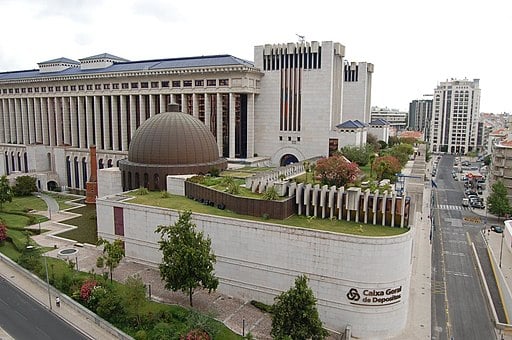
8. Amoreiras Shopping Center
Location – Avenida Engenheiro Duarte Pacheco
Amoreiras is a postmodern architectural landmark that, upon its completion in 1985, became an instant source of debate. Designed by architect Tomás Taveira, this massive shopping and office complex blends Art Deco-inspired elements with an unorthodox fusion of glass, concrete, and bright colors. The quirky design is both praised and criticized for its boldness and irreverence. For visitors, it’s a chance to see Lisbon’s architecture during its experimental, postmodern phase.
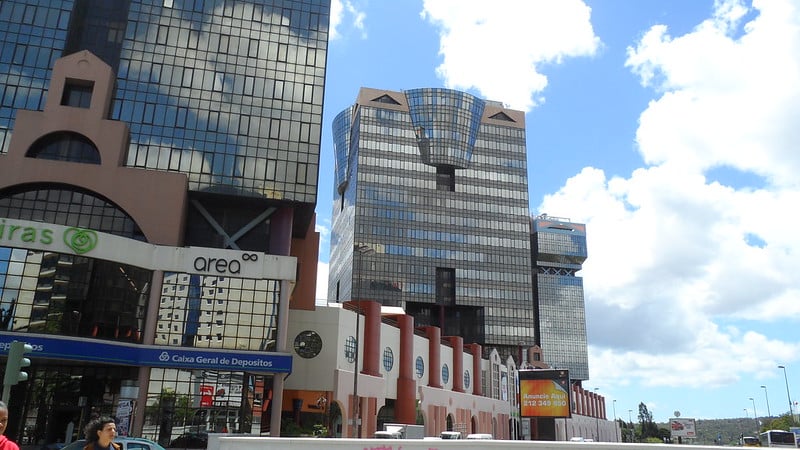
9. Estufa Fria
Location – Parque Eduardo VII
Estufa Fria is a unique architectural greenhouse hidden within the expansive Parque Eduardo VII. Opened in 1933, this botanical wonderland is housed in a lattice structure of wood and metal. Its shaded canopy provides a cool, relaxed atmosphere, making it feel like a hidden jungle in the middle of the city. The combination of nature and architecture gives the Estufa Fria an almost otherworldly appeal, which is a must-visit for nature lovers and those seeking a spot off the beaten path in Lisbon.
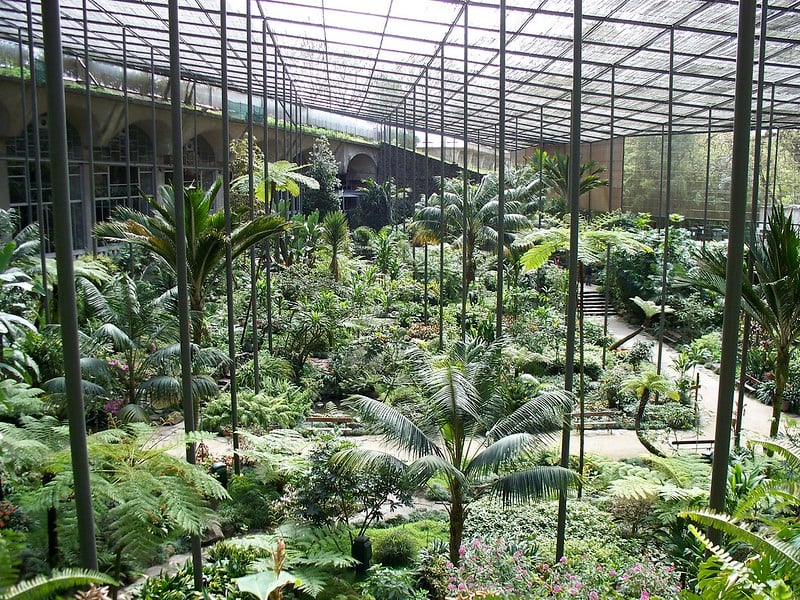
10. Palácio de São Bento
Location – Praça da Constituição de 1976
The Palácio de São Bento is a historic neoclassical building that has served as the seat of the Portuguese Parliament since 1834. Originally a Benedictine monastery built in 1598, the palace underwent significant transformations after becoming government property in the 19th century. It looks more like a building you would expect to see in Rome rather than Lisbon with its grandiose main facade. The interior boasts elaborate rooms and halls, such as the impressive Salão Nobre, adorned with beautiful paintings and sculptures that reflect Portugal’s rich history. The building also houses the official residence of the Prime Minister.
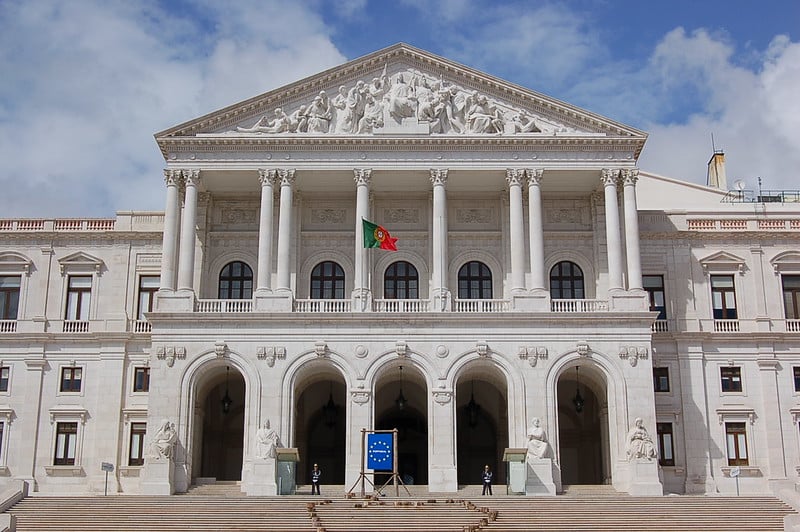
11. Fábrica Braço de Prata
Location – Rua Fábrica de Material de Guerra 1
While it may not look like much from the outside, Fábrica Braço de Prata on the east side of Lisbon is a cultural hotspot with an ever-rotating program of events. Originally a munitions factory dating back to the early 20th century, this building has transformed over the years into a hub for art, music, and community gatherings. Its industrial roots are evident in the raw, warehouse-style spaces, but creative additions like colorful murals, quirky decor, and reimagined spaces for live performances have given it a unique, almost surreal character. The most unusual feature? The way its backyard has been transformed into a space for camper vans and RVs to find an affordable place to stay and take part in the creativity.
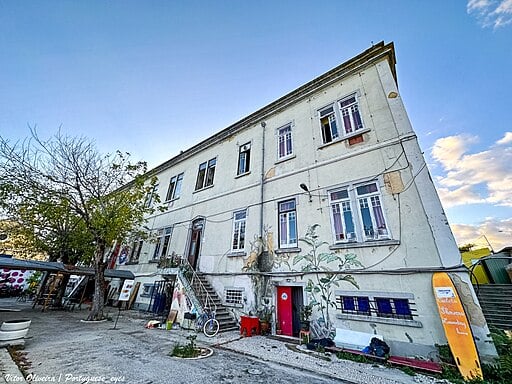
12. EDP Headquarters
Location – Avenida 24 de Julho 12
The EDP Headquarters (Energias de Portugal) in the Santos district is one of Lisbon’s most striking contemporary buildings. Designed by the internationally renowned architectural firm Álvaro Siza Vieira and Eduardo Souto de Moura, this headquarters showcases a bold blend of form and function. The building’s dynamic, angular design with its sharp lines and perforated white exterior seems to play with light and shadow throughout the day. Its distinctive façade also helps regulate temperature inside the building, blending sustainable design with aesthetic innovation. Located along the waterfront in the revitalized Santos area, the EDP Headquarters stands as a symbol of Lisbon’s commitment to modernity and energy efficiency.
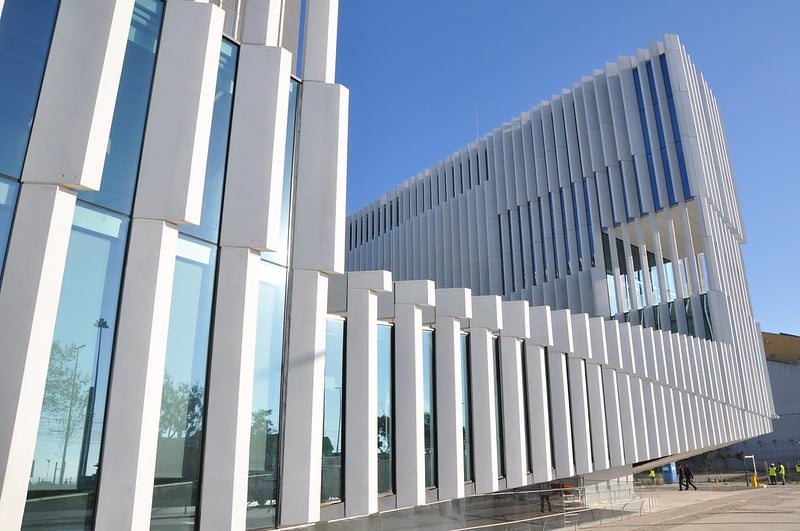
13. CAM – Centro de Arte Moderna Gulbenkian
Location – Rua Marquês de Fronteira 2
After more than years of construction, the CAM – Centro de Arte Moderna Gulbenkian, located in Lisbon, Portugal, reopened in September 2024 after an extensive redesign by renowned Japanese architect Kengo Kuma. This revitalized modern art museum, part of the Calouste Gulbenkian Foundation, now showcases a harmonious blend of natural materials and open spaces, seamlessly integrated into the surrounding Gulbenkian gardens. Kuma’s design emphasizes light and shadow and creates an immersive environment that enhances the experience of the contemporary Portuguese and international artworks it houses. The reopened CAM celebrates a modern, sustainable approach to museum design, with spaces that foster a closer connection between art, nature, and visitors.
Final Thoughts
As you can see, Lisbon is a city that embraces both tradition and innovation, and its architecture goes way beyond the prominent Manueline architecture in the center of the city. From the fusion of Moorish and Gothic styles in Casa do Alentejo to the futuristic lines of the MAAT and Gare do Oriente, each of these fascinating building tells a different story of Portugal’s past, present, and forward-thinking vision. We invite you to explore these buildings on your next trip to Lisbon!

